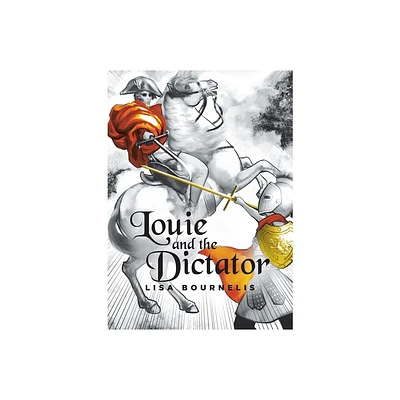Home
A Dictator Calls
Loading Inventory...
Barnes and Noble
A Dictator Calls
Current price: $16.95


Barnes and Noble
A Dictator Calls
Current price: $16.95
Loading Inventory...
Size: Paperback
*Product Information may vary - to confirm product availability, pricing, and additional information please contact Barnes and Noble
Longlisted for the International Booker Prize
The Wall Street Journal
, A Best Book of the Year
Using a sophisticated and literary version of the ever-popular game of telephone to examine the relationship of writers with tyranny, Ismail Kadare reflects on three particular minutes in a long moment of time when the dark shadow of Joseph Stalin passed over the world
In June 1934, Stalin allegedly called Boris Pasternak and they spoke about the arrest of Osip Mandelstam. A telephone call from the dictator was not something necessarily relished, and in the complicated world of literary politics it would have provided opportunities for potential misunderstanding and profound trouble. But this was a call one could not ignore. Stalin wanted to know what Pasternak thought of the idea that Mandelstam had been arrested.
Ismail Kadare explores the afterlife of this phone call using accounts of witnesses, reporters, writers such as Isaiah Berlin and Anna Akhmatova, wives, mistresses, biographers, and even archivists of the KGB. The results offer a meditation on power and political structure, and how literature and authoritarianism construct themselves in plain sight of one another. Kadare’s reconstruction becomes a gripping mystery, as if true crime is being presented in mosaic.
A little time ago the poet Mandelstam was arrested. What have you to say to that, Comrade Pasternak?
The Wall Street Journal
, A Best Book of the Year
Using a sophisticated and literary version of the ever-popular game of telephone to examine the relationship of writers with tyranny, Ismail Kadare reflects on three particular minutes in a long moment of time when the dark shadow of Joseph Stalin passed over the world
In June 1934, Stalin allegedly called Boris Pasternak and they spoke about the arrest of Osip Mandelstam. A telephone call from the dictator was not something necessarily relished, and in the complicated world of literary politics it would have provided opportunities for potential misunderstanding and profound trouble. But this was a call one could not ignore. Stalin wanted to know what Pasternak thought of the idea that Mandelstam had been arrested.
Ismail Kadare explores the afterlife of this phone call using accounts of witnesses, reporters, writers such as Isaiah Berlin and Anna Akhmatova, wives, mistresses, biographers, and even archivists of the KGB. The results offer a meditation on power and political structure, and how literature and authoritarianism construct themselves in plain sight of one another. Kadare’s reconstruction becomes a gripping mystery, as if true crime is being presented in mosaic.
A little time ago the poet Mandelstam was arrested. What have you to say to that, Comrade Pasternak?


















